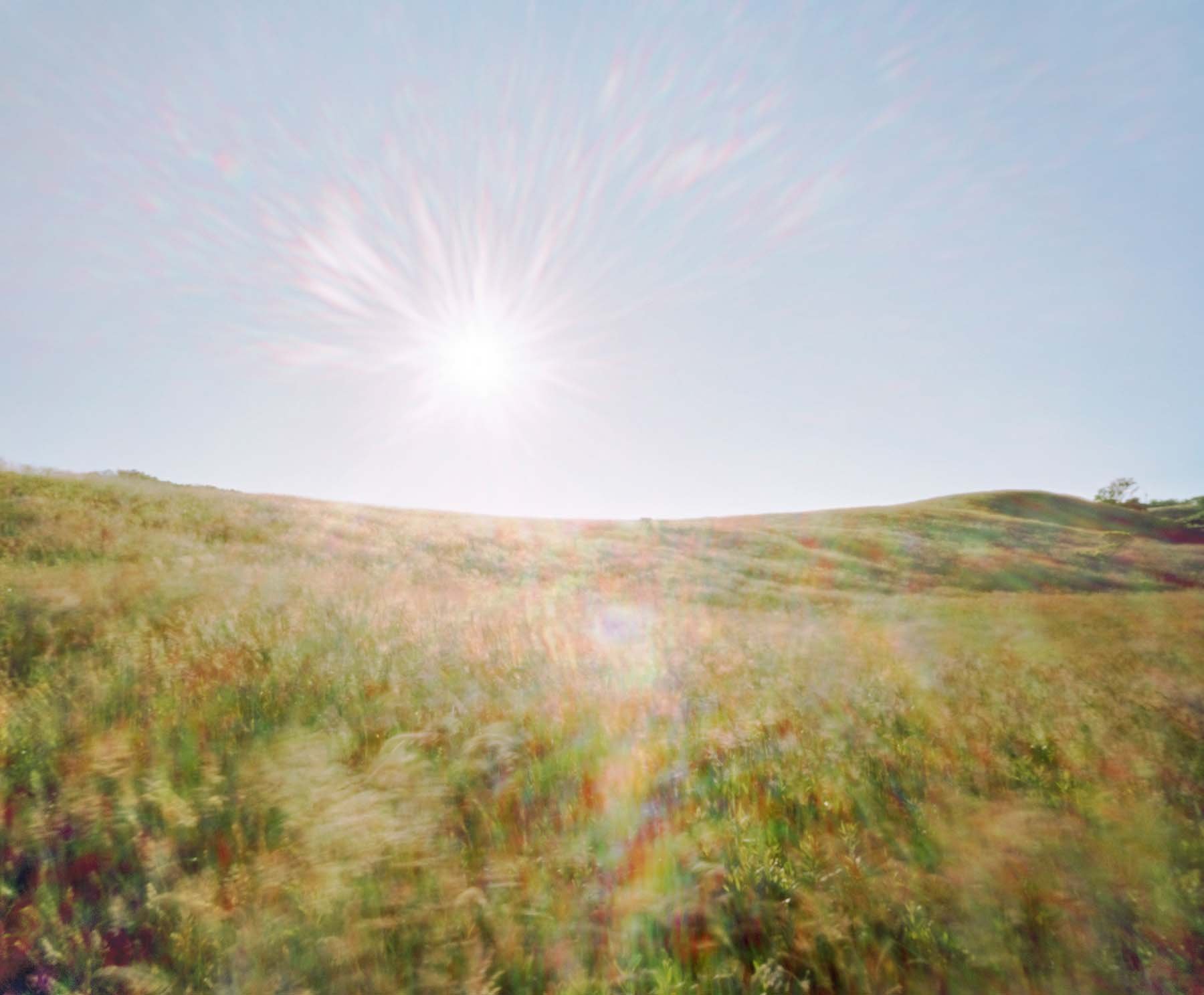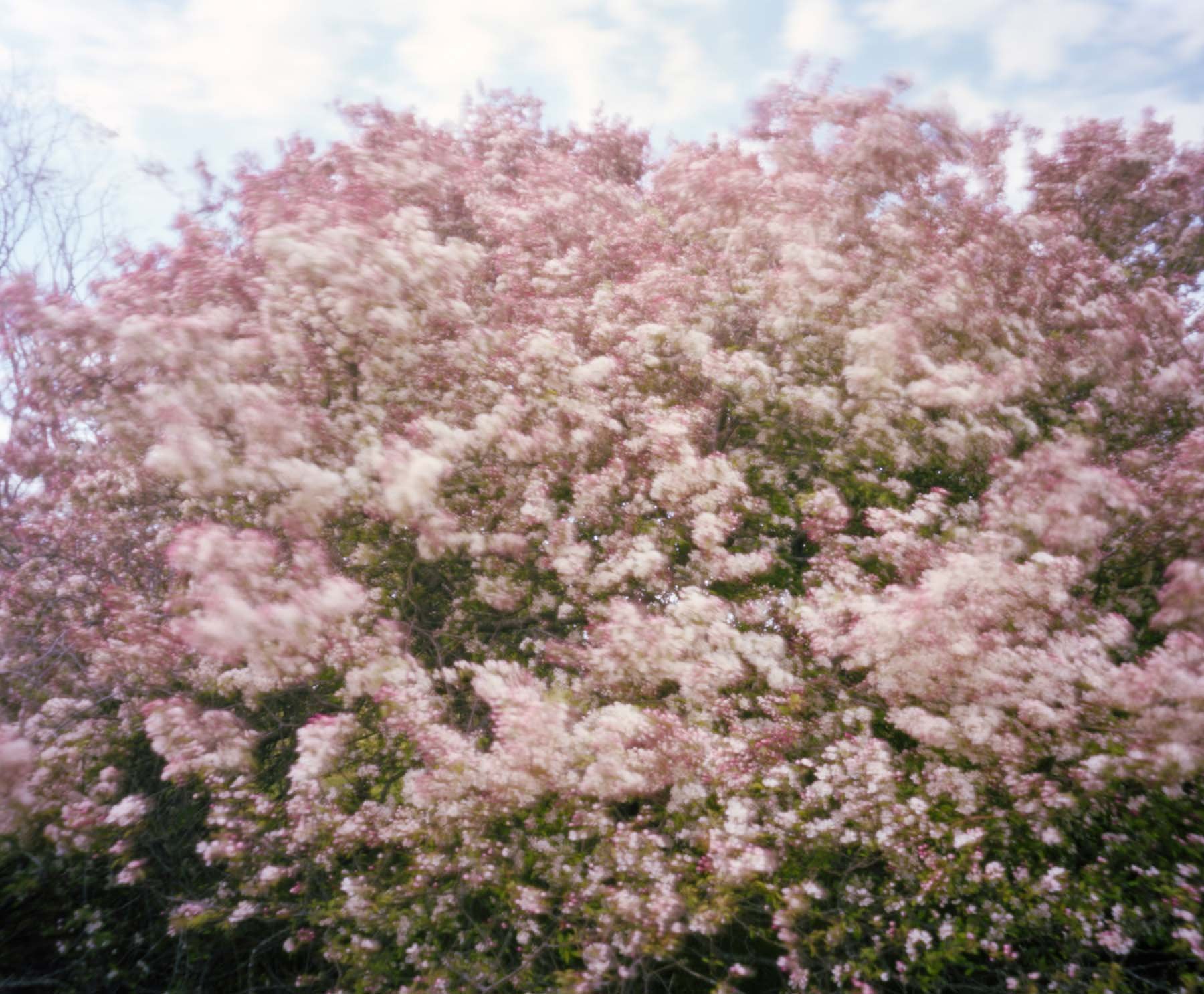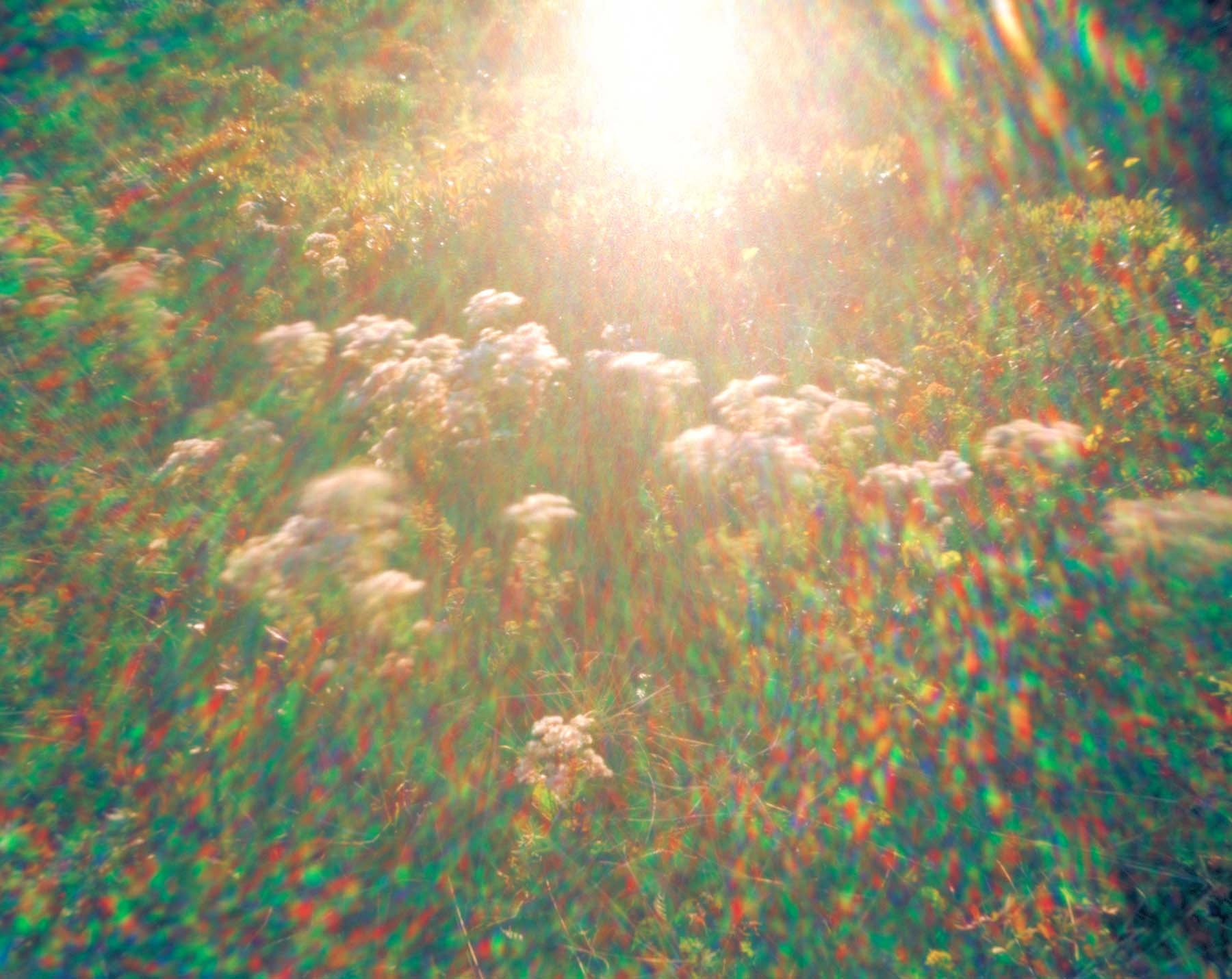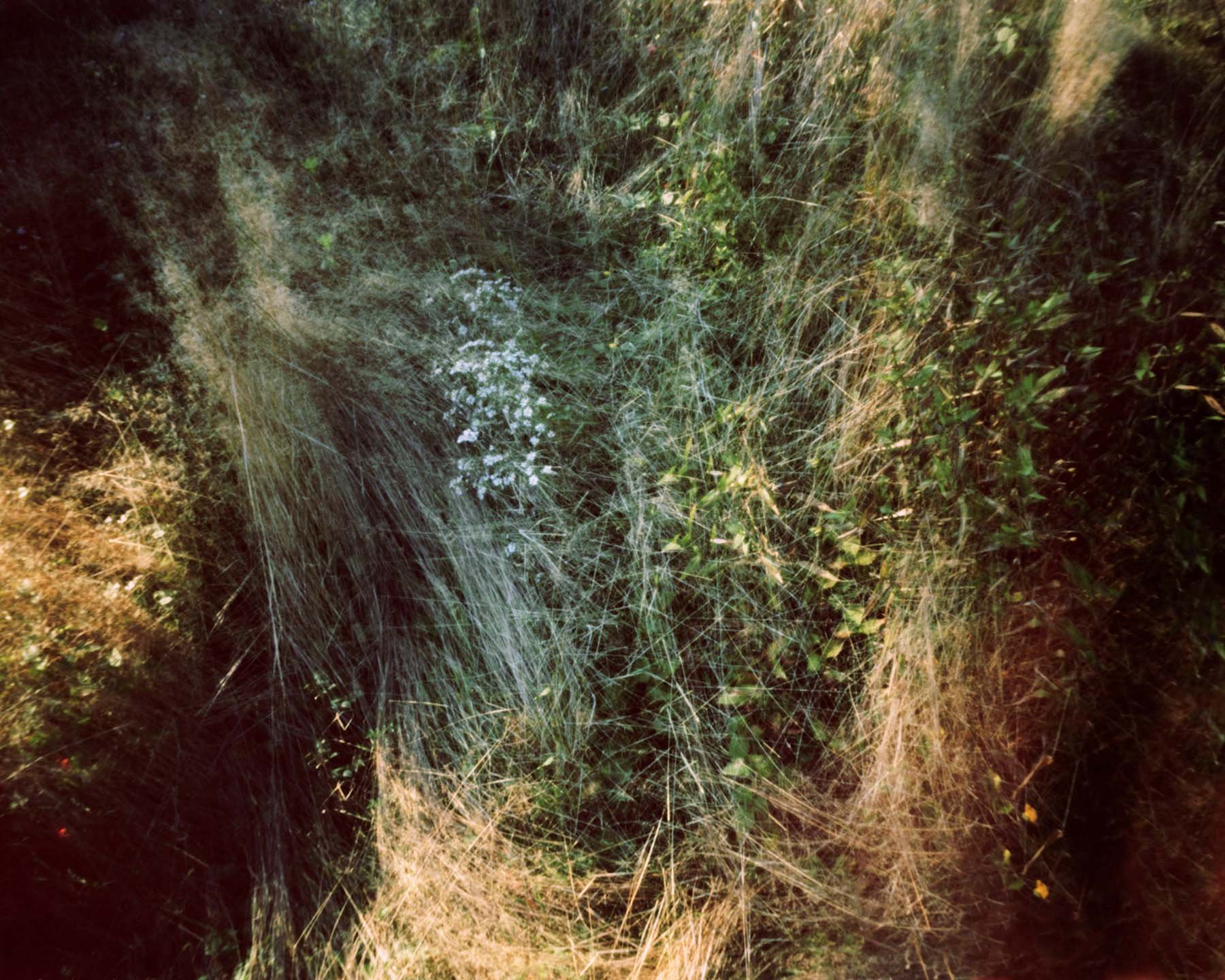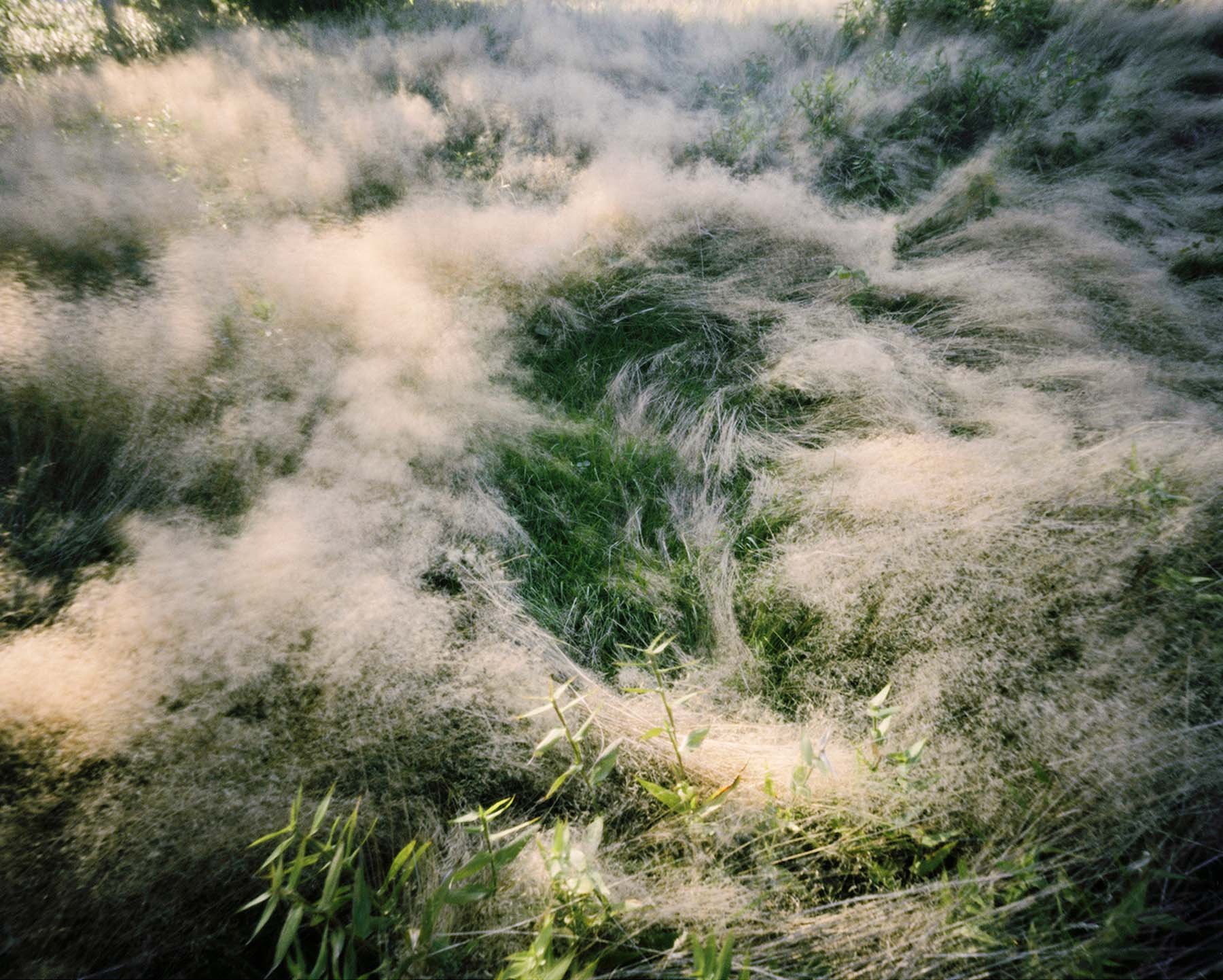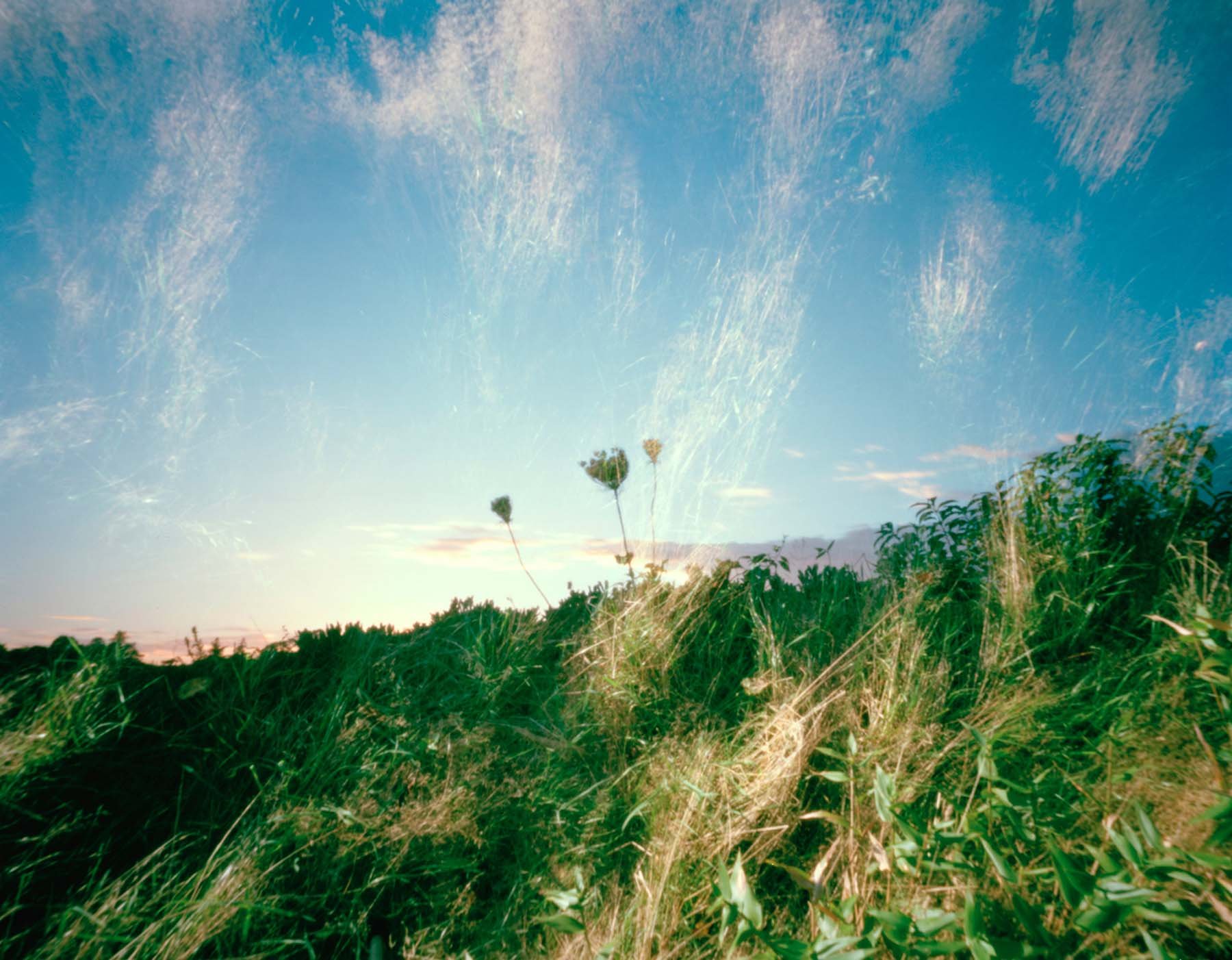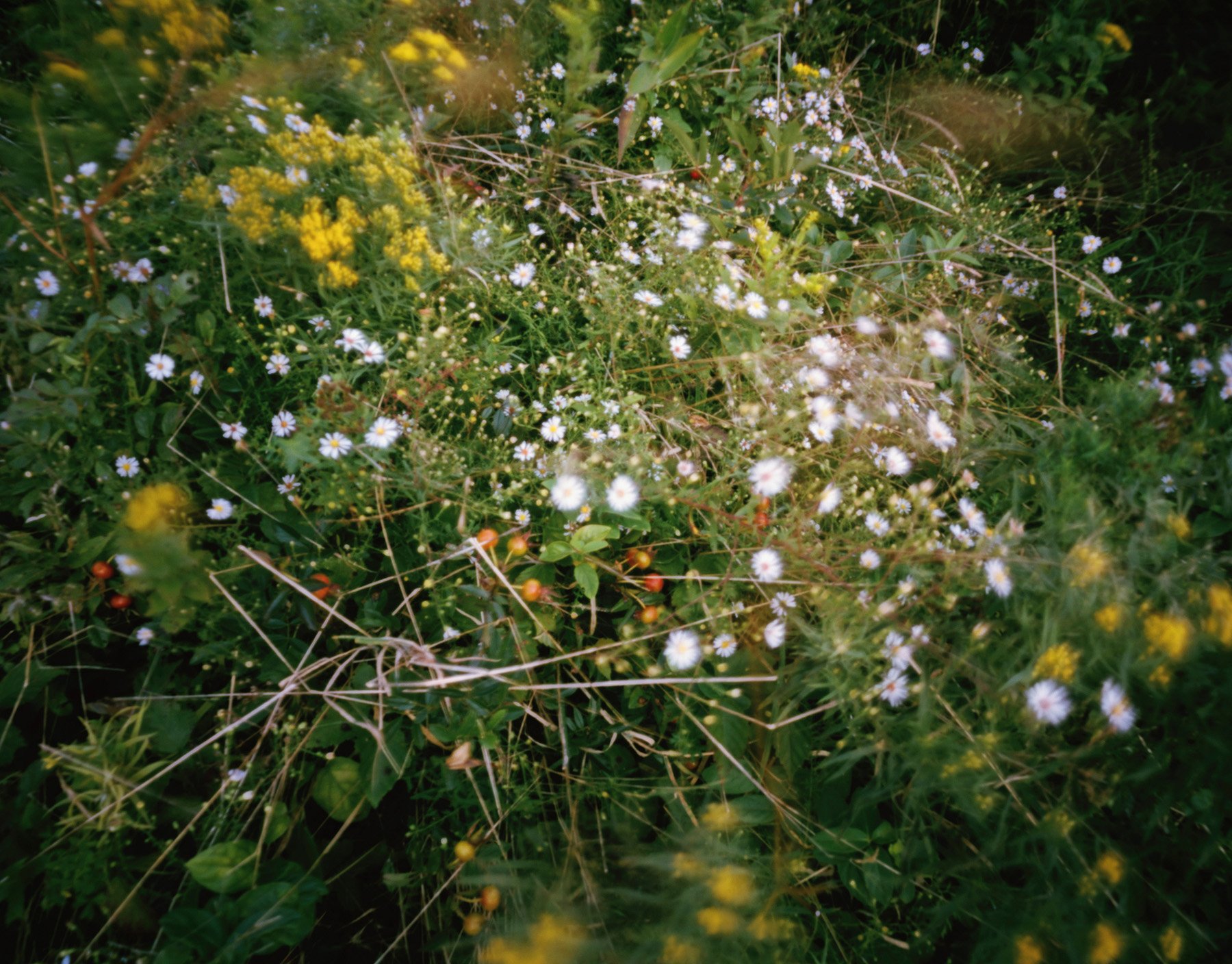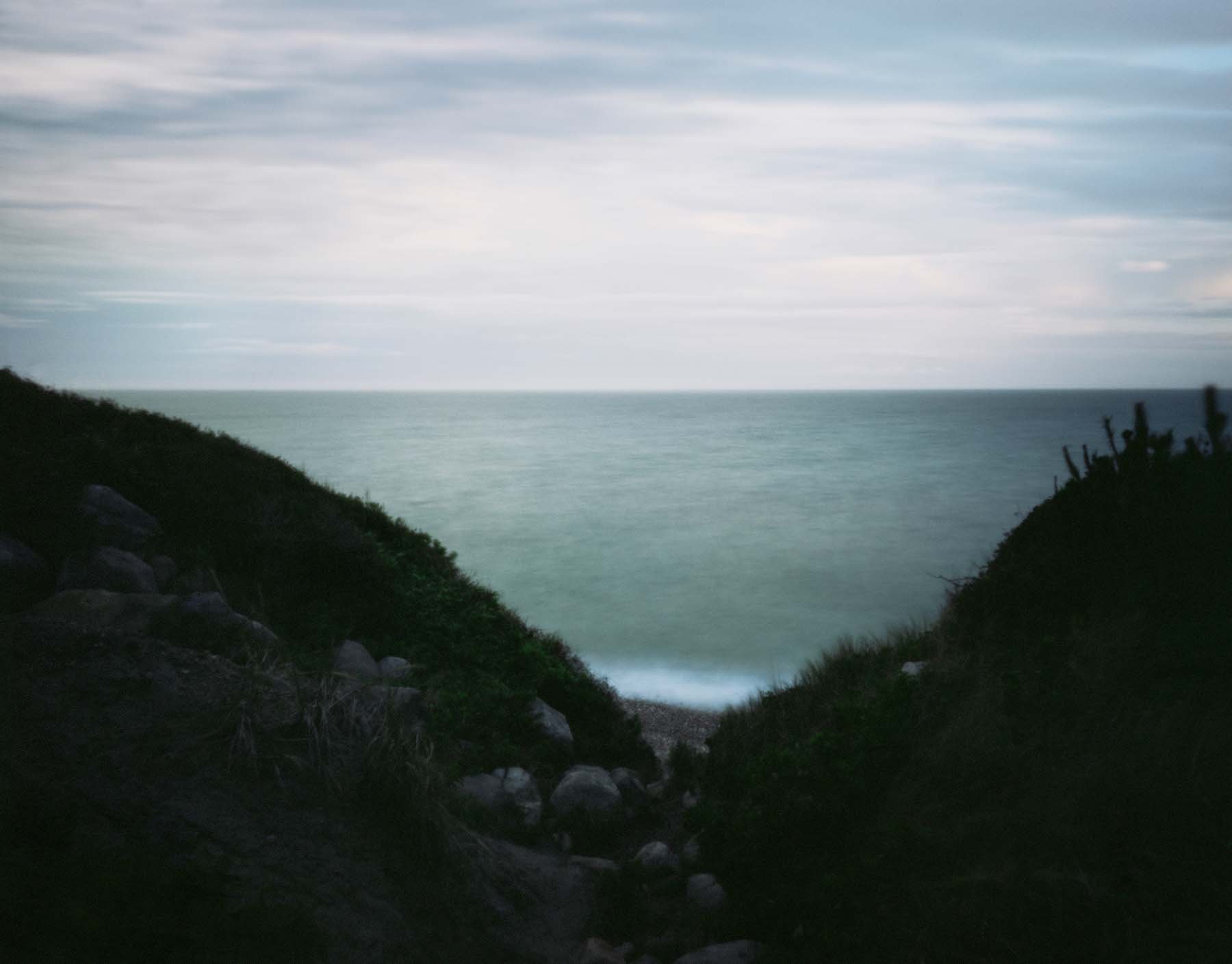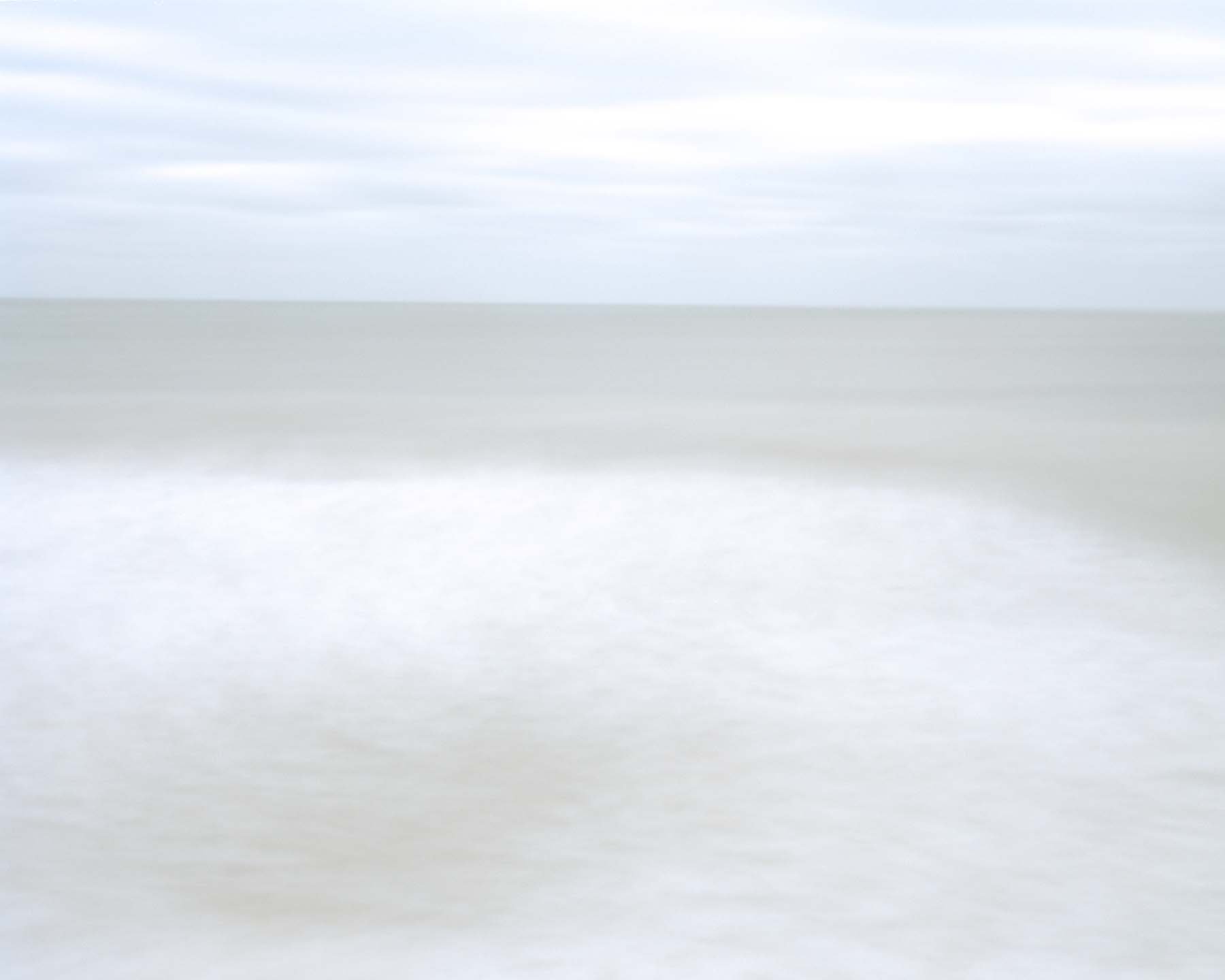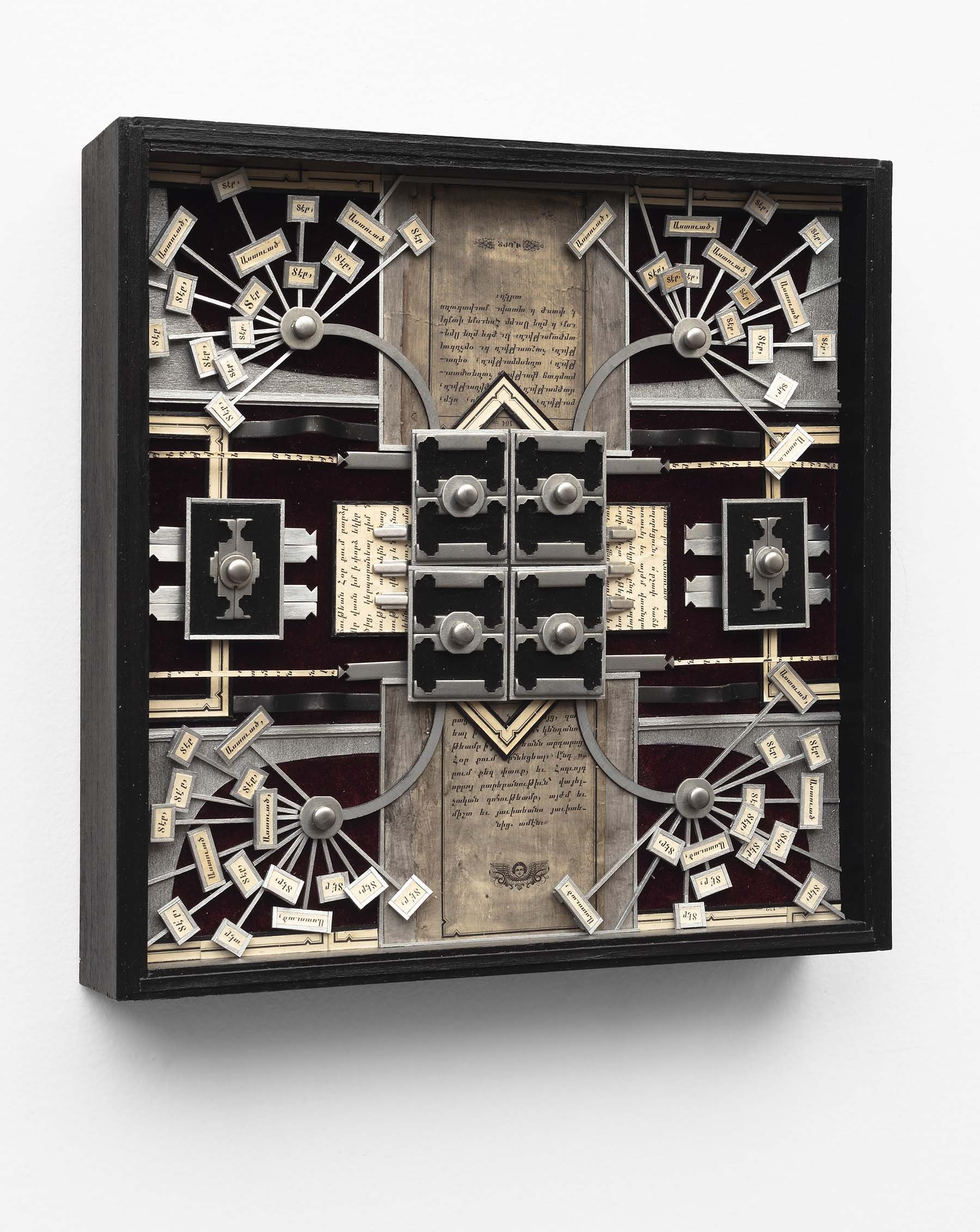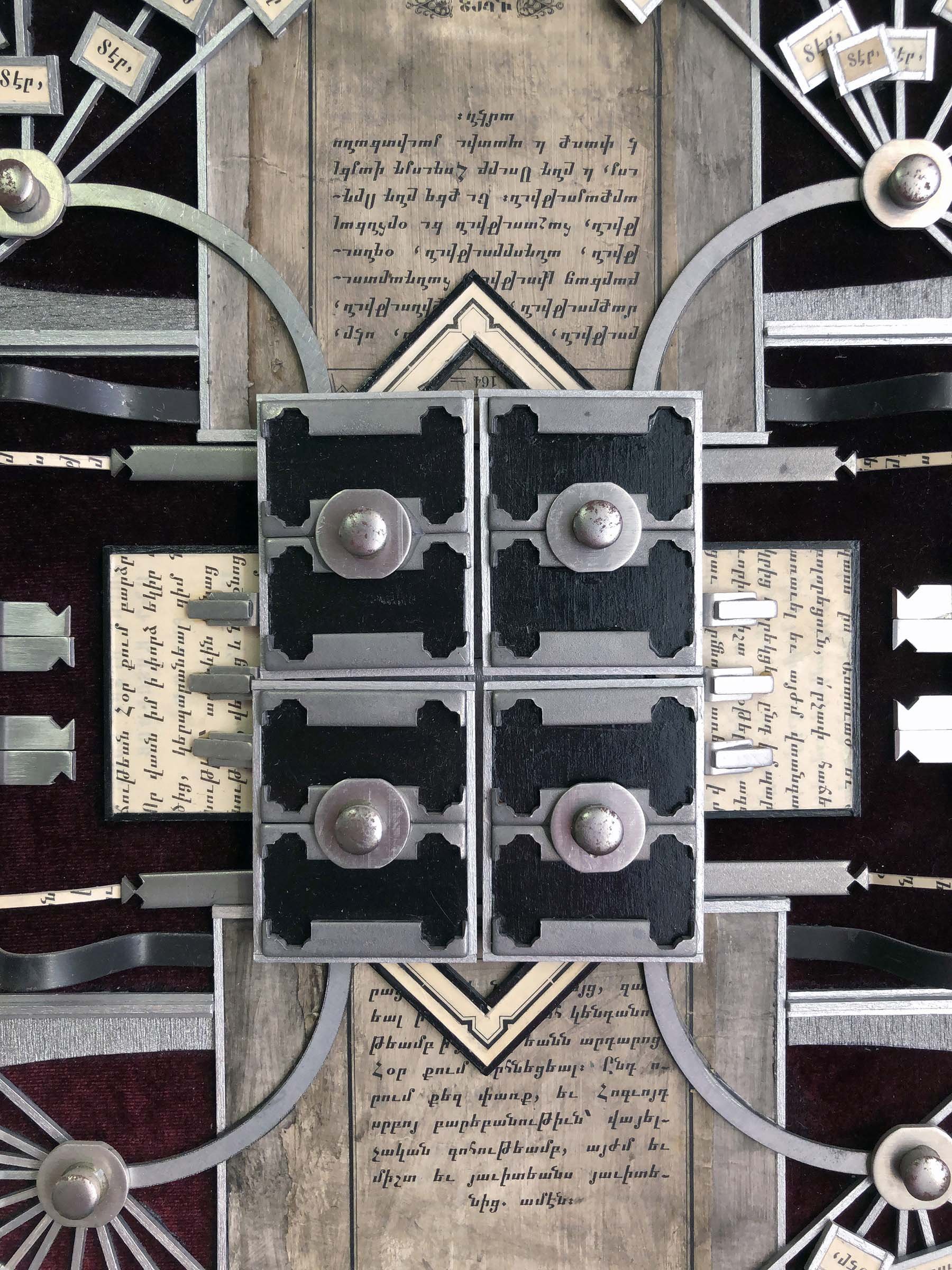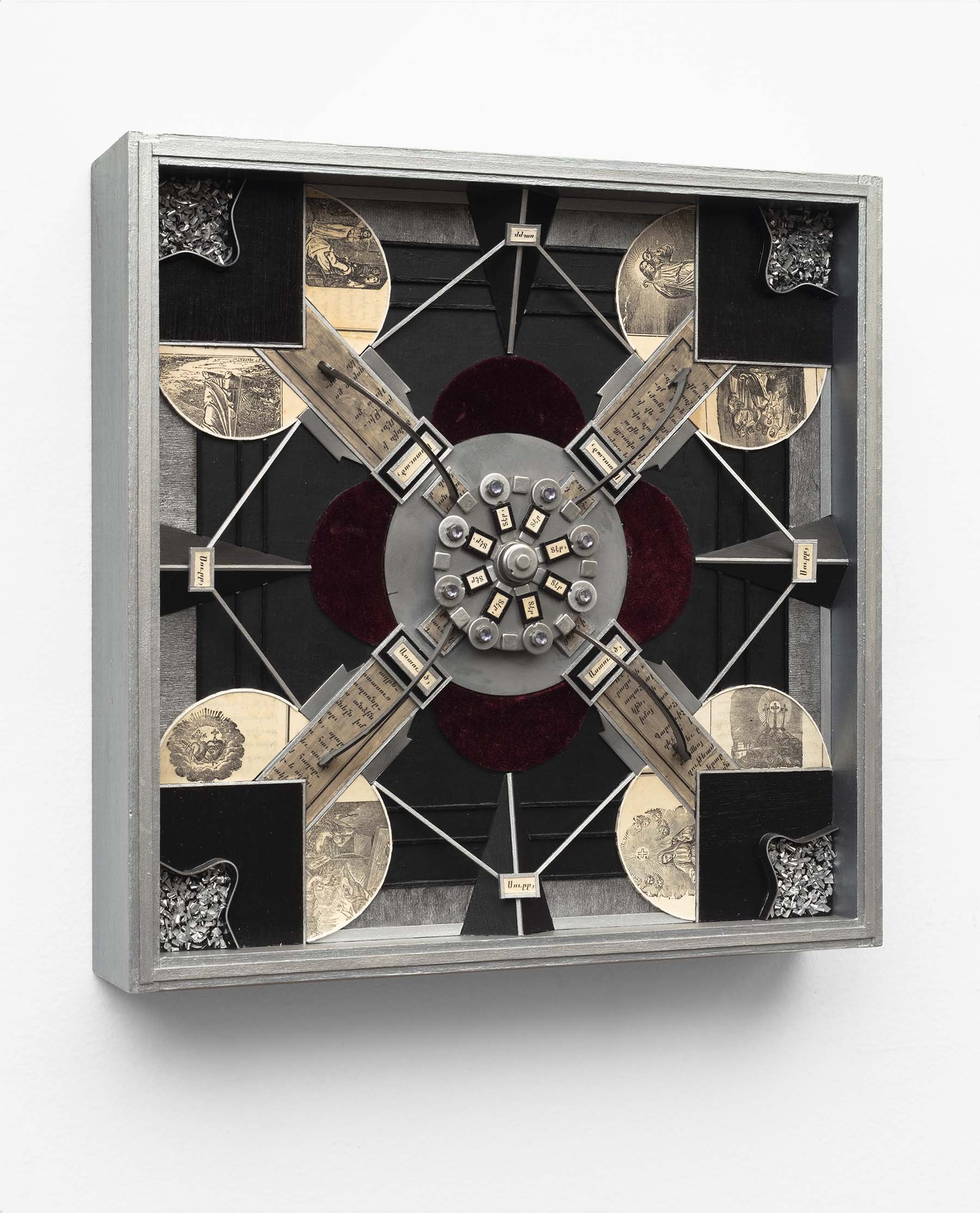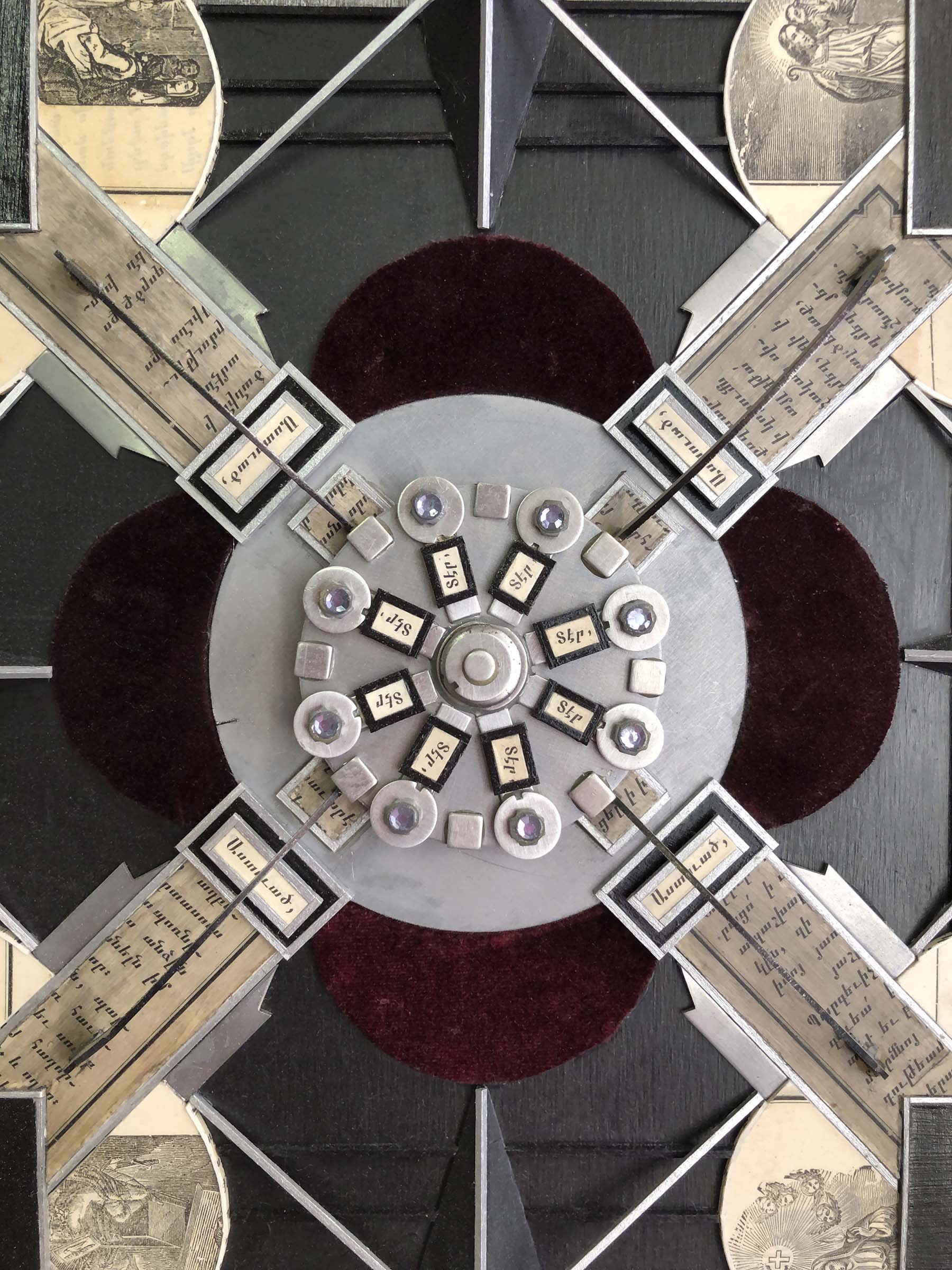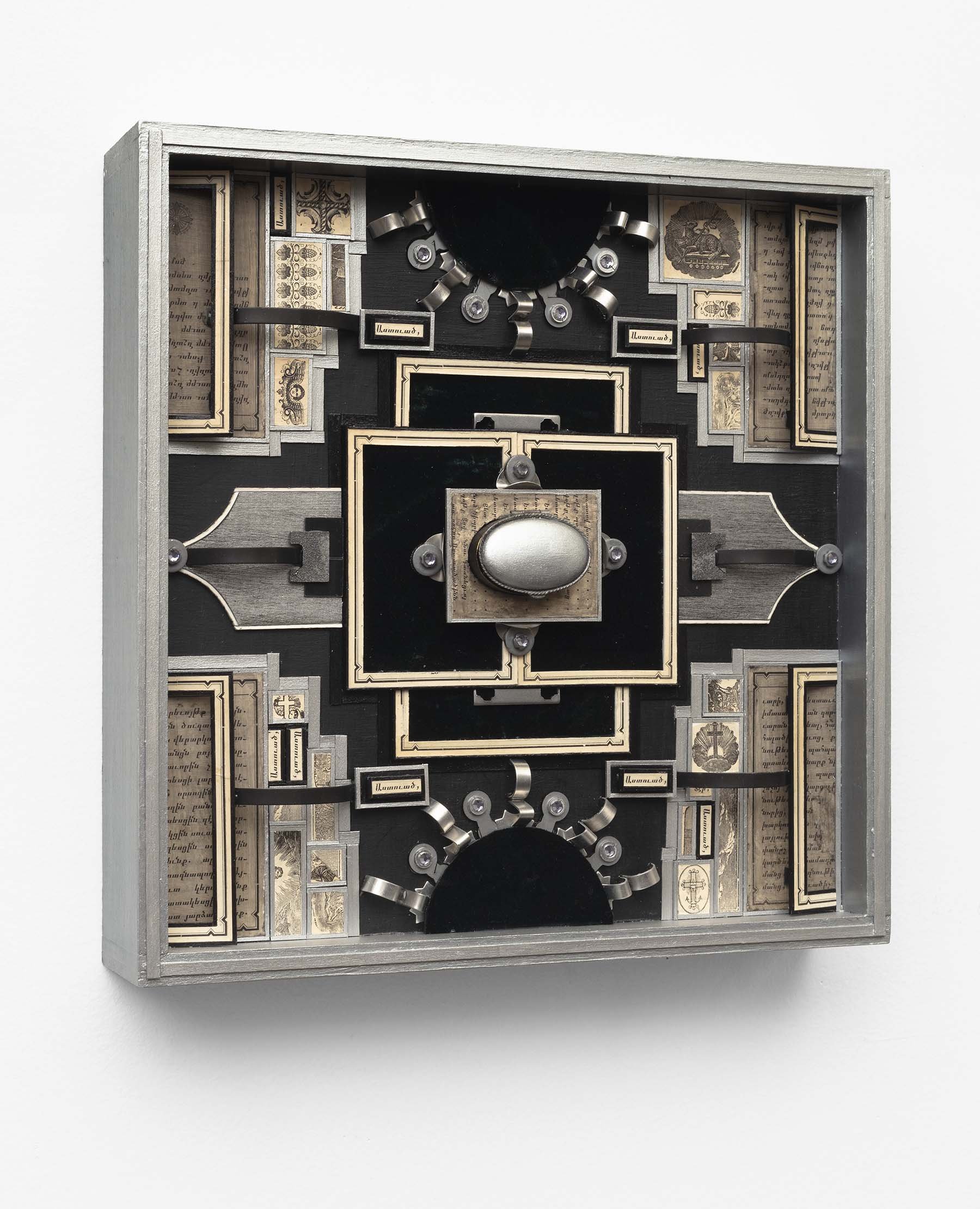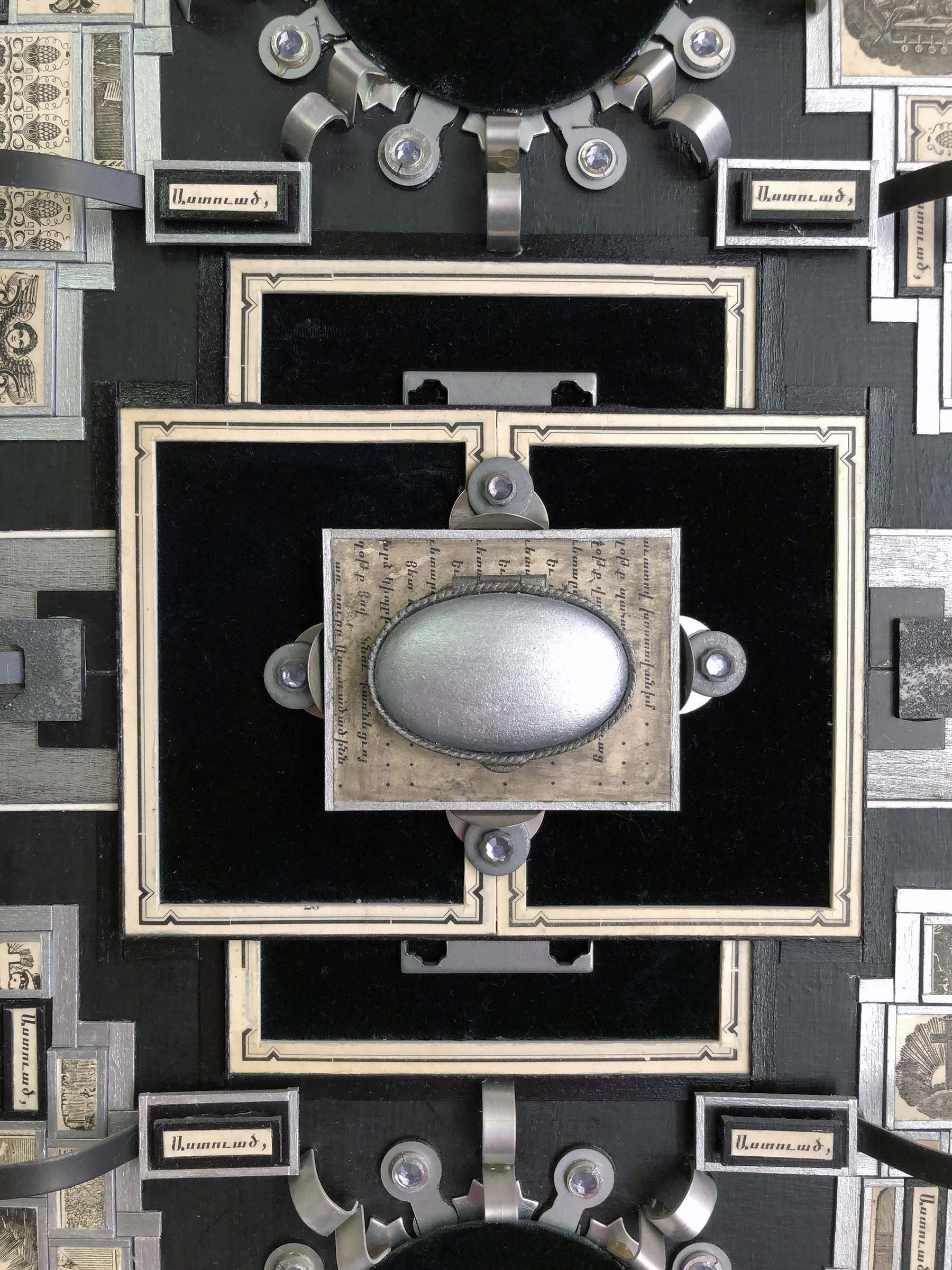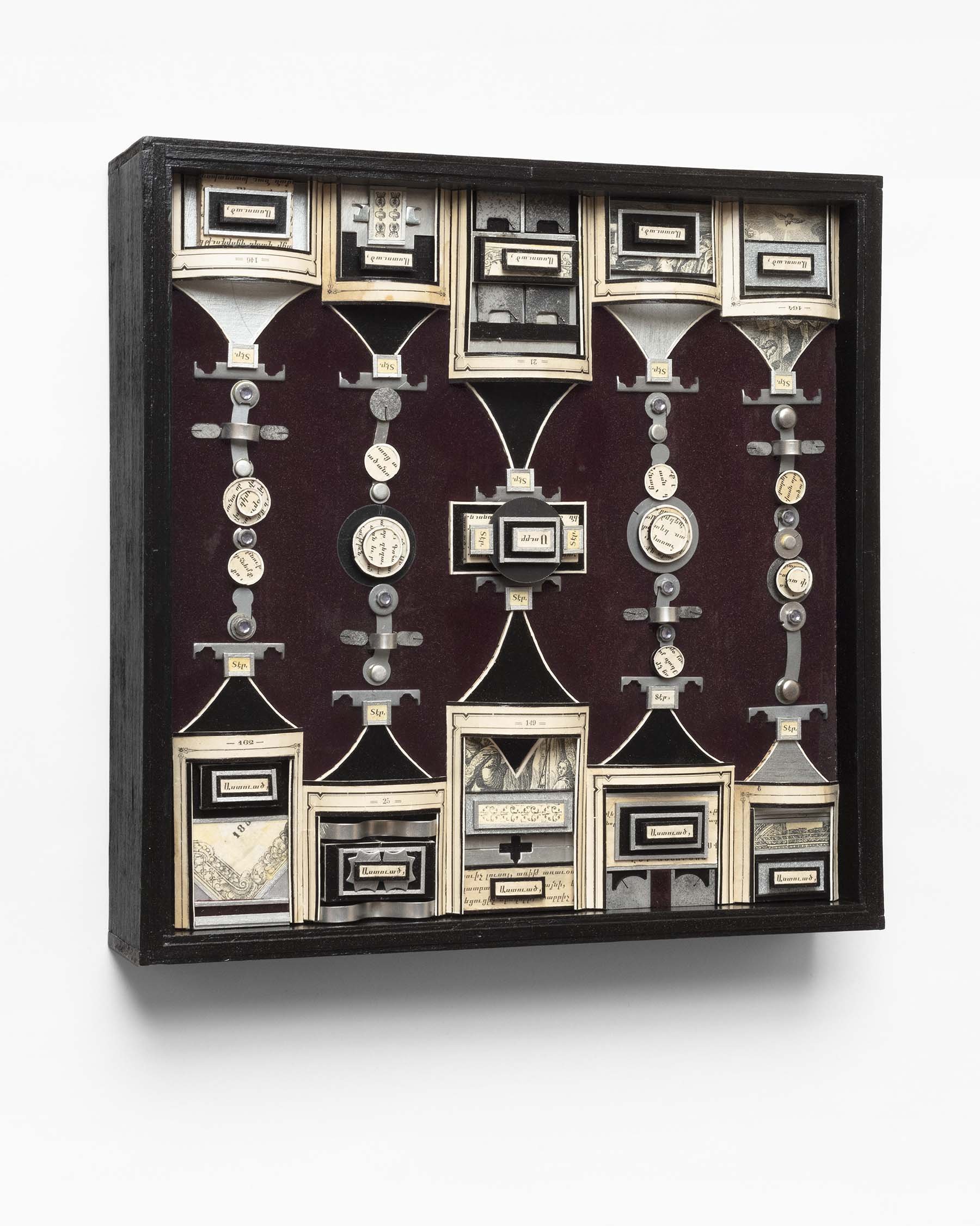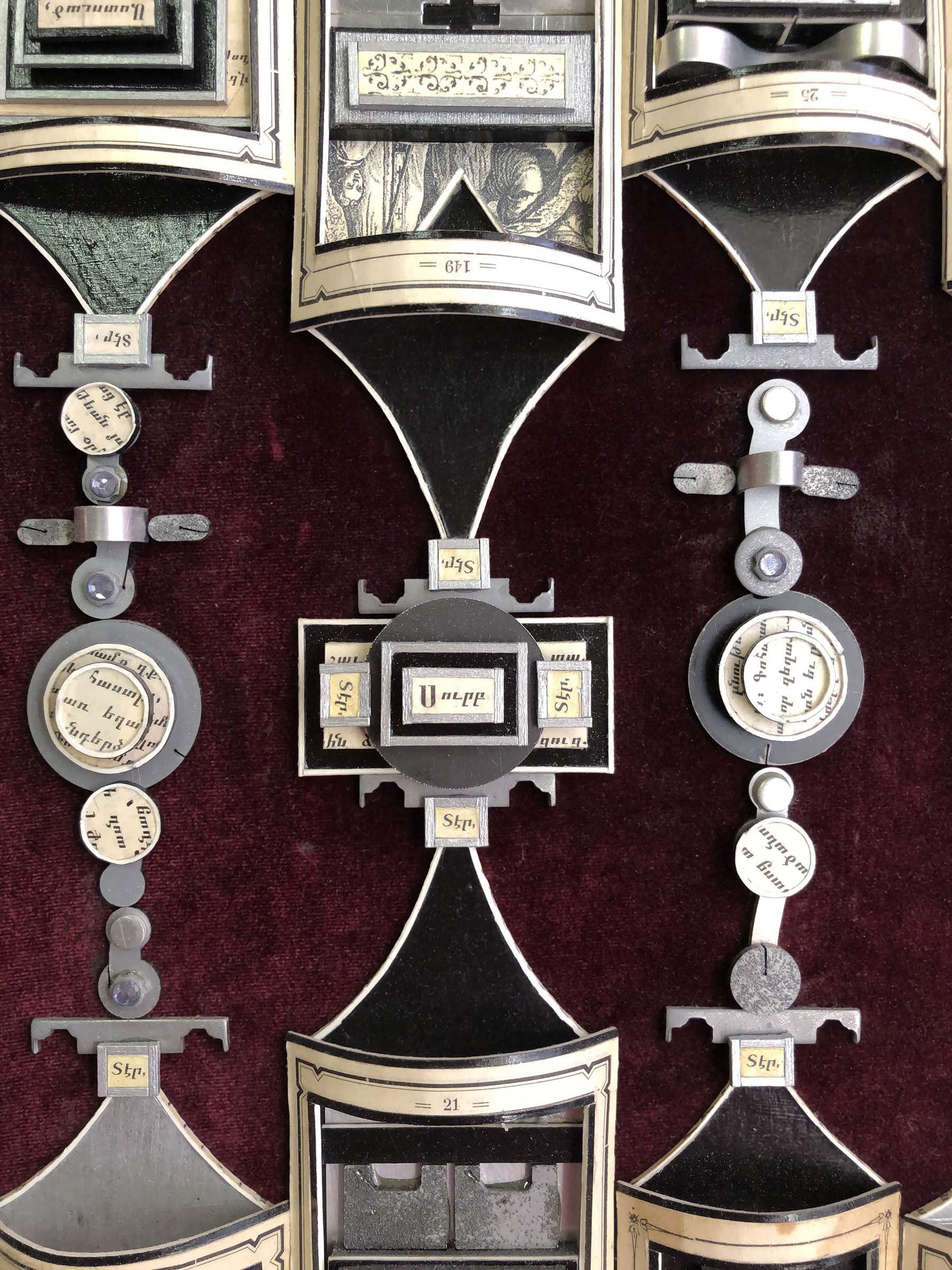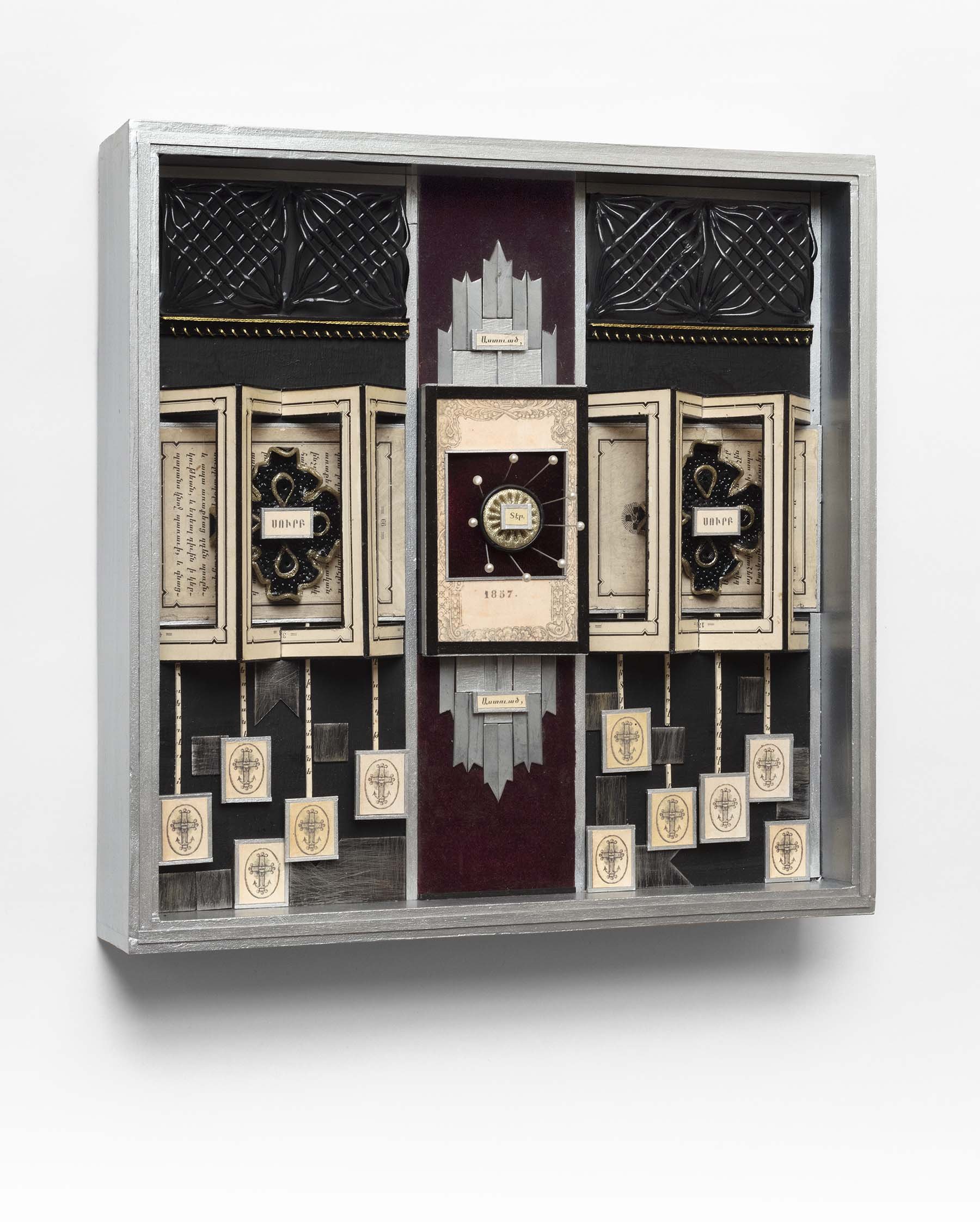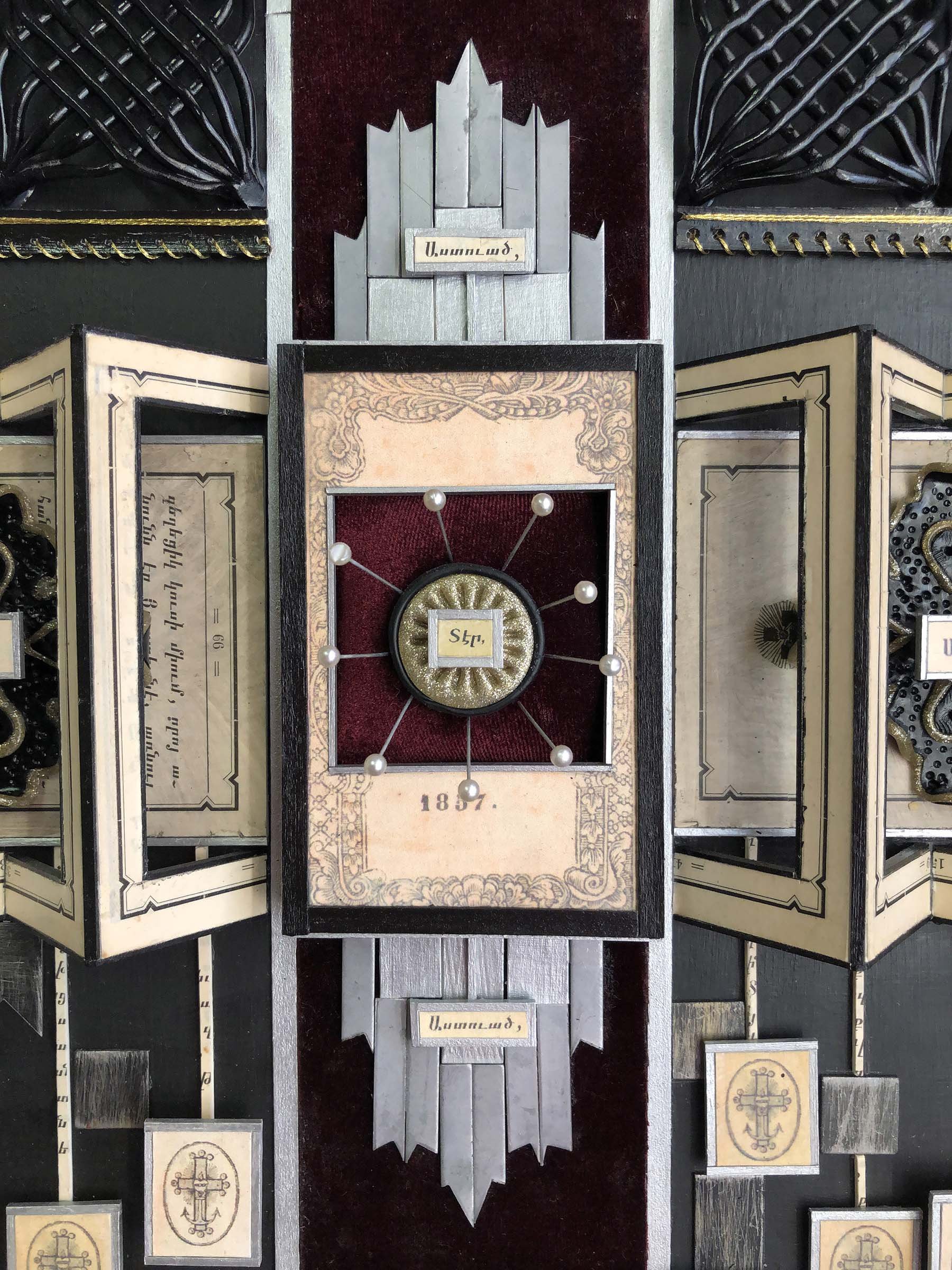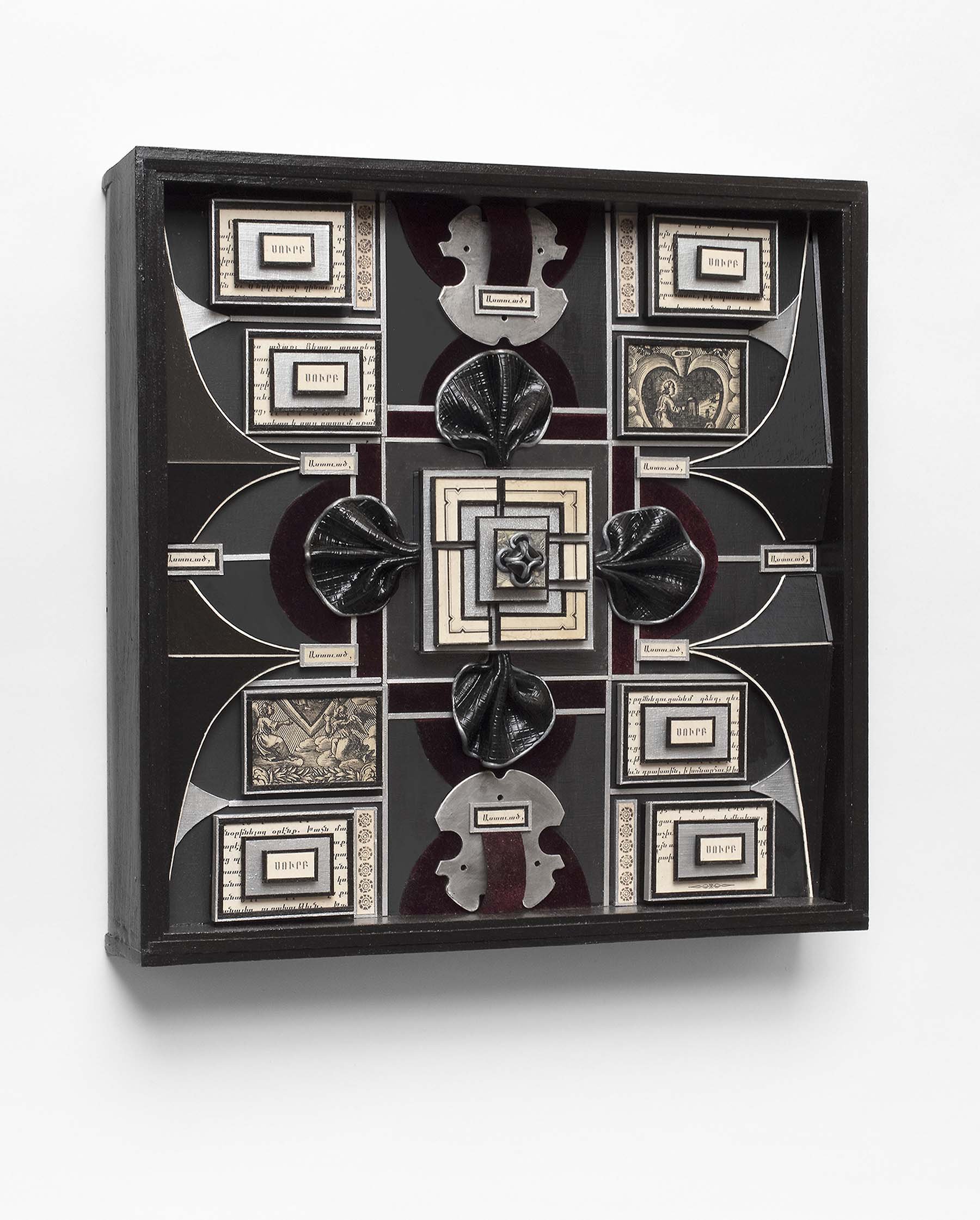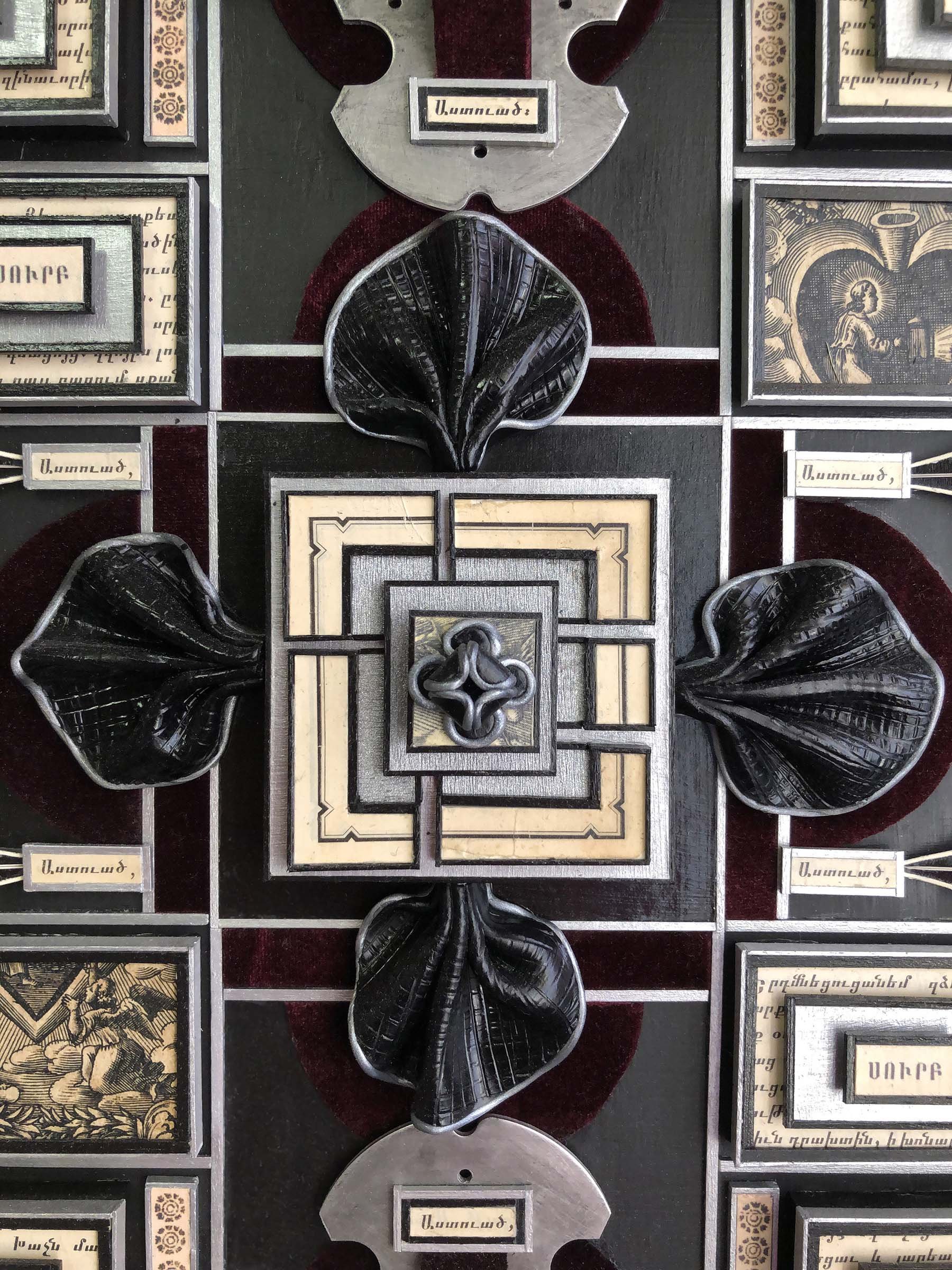Kassel, Germany, June–September, 2022
In a quiet room, a worn, knitted hammock sways in the light breeze, while sunbeams from the window gleam on the orange-red tiled floor. There's a yellow table, a wooden chair, and some leafy plants in the background, and not much else. The video, presented by the Nhà Sàn Collective as part of their documenta fifteen installation, moves slowly through a series of scenes like this: gentle, unassuming still-life tableau, seemingly shot in someone's nice, modest home, with very little movement (or none at all). It's a piece that would make a lot of sense installed in a wooden shed, by a garden: a place where, it feels, the world requires of you only to either work or rest, a place that invites the calm. At the same time, though, it's a piece that likely wouldn't work in a white-walled gallery/museum space: it might come off as aimless, or meandering, or detached. We're lucky, then, that in this case there was indeed a garden, and a shed, and an outdoor kitchen, and a collection of seeds from Vietnam, and a pair of large porcelain vases, and many other things, all of it sitting quietly in a semi-abandoned courtyard, waiting for visitors.
documenta happens every five years in Kassel, a small German city about two hours from Berlin. In an art world replete with recurring contemporary survey exhibits—your various biennials and such—documenta is probably the biggest perennial art show out there. And, it is big. It's hard to convey just how big documenta fifteen was—as a cultural event, sure, but even just as a physical thing. The show ran from June to September of 2022—about a thousand hours in total—and I genuinely wonder: what if someone had wanted to take all of it in? To read every book-length text, interact meaningfully with every participatory installation, watch every feature-length documentary video, read the transcripts of every panel discussion, listen to every podcast? Would a thousand hours even have been enough time? I honestly don't think it would have been. (At one point, I spoke with a visitor who was on her sixth day at the show, and she said that she still hadn't seen most of it.) It's not just that there was so much art to see, but also where the art actually was: more than thirty venues across the city of Kassel and into the neighboring town of Fulda, including a church, a public pool, a bus factory, a 16th-century fortress, a dilapidated nightlife complex, a subway underpass, a compost heap.
Kassel is sleepy in parts, but it's a pretty bustling place overall, with lots of nightclubs and a posh, downtown shopping district. You sense that this place is well used to accommodating affluent tourists, but still, the city goes all out for documenta. There are colorful documenta banners that you see first thing in the train station, the municipal buses are plastered in documenta signage, the restaurants downtown serve documenta-themed meals, and the local shops sell documenta umbrellas, documenta wallets and documenta handbags. There's even documenta-branded beer. Kassel has an abundance of museums—a Brothers Grimm museum, a museum of local agricultural history, a museum of death (the Museum of Sepulchral Culture, it's called)—and documenta seems to have claimed a significant chunk of space in all of them. At some point, it starts to feel a bit like an invasive plant (a benignly invasive plant): these curious little art projects that have sprouted up in various rooms across town, a welcome disturbance to the normal way of things, but still certainly a disturbance.
There was a particular seriousness to documenta fifteen. Not that there wasn't anything funny—there was actually a lot of humor throughout—but it was cut with a kind of severity, or solemnity. Thinking here of the installation by graphic novelist Nino Bulling, which involved loosely drawn, intimate comic-book panels printed on fabric, draped from the ceiling and lit with a fuzzy red light. There was a playful sweetness to this work, and also a strange or even ominous sense of intimacy, the images hanging like the scent of someone who's just left the room. Fehras Publishing Practices, a Berlin-based research collective, presented an installation on the culture of the Afro-Asian Solidarity Movement, and this piece also functioned as a sort of graphic novel. Individual panels of cheeky digital photos and brightly colored text, printed six feet high and fastened to large wooden stands, ordered together to form a sort of miniature labyrinth. It's an ambitious, compelling piece, but it was a bit clunky as an installation, and that kind of thing was an issue all throughout the show: when an exhibiting artist is a nebulously formed collective, or an activist project rooted in a particular location, their work might go through some punishing contortions before it can fit into a gallery space. One of the most charming pieces in the show is "Moondog": a giant, floppy dog puppet whose use has been shared between several different theater companies. It's a great puppet, but without a corps of performers to activate him, he just lays there, his jaw sagging onto the gallery floor.
documenta has always had a political cast to it (the first edition, in 1955, was meant to showcase art that had been banned by the Third Reich), but documenta fifteen wears its politics in a way that I haven't seen before at this kind of art show. This edition was curated by ruangrupa, an Indonesian collective, and the show centers collectivity and social practice, rather than the big-name gallery artists who've anchored previous editions. At times, it felt almost like some sort of educational program about modern-day collective practice, not an "art show." This isn't to diminish the work of any of the participants, which was often impressive and—so help me—inspiring, but it's hard to fully grasp these projects as a visitor (and tricky to try and evaluate them as a critic). Often, while walking through the various spaces of documenta, you'd come across a messy art studio with clay sculptures still in-progress on plastic-covered stools, or an outdoor meeting-room with a half-erased blackboard agenda, or a cache of crayon drawings by excited preschoolers, and all you could say, really, is that something happened here. At one point I came across a bunch of tattered, yellow chairs, arranged in a circle, and I honestly don't know if this was part of a project, or a project itself, or maybe just a bunch of yellow chairs.
So, you have collectives like Black Quantum Futurism, a small group based in Philadelphia, who created (among other things) a performance stage, printed advertisements, and a fanciful machine that asks visitors to submit their own thoughts on time and space (this was the piece installed in the subway underpass). There's FAFSWAG, an Aotearoa/New Zealand–based collective dedicated to queer, indigenous representation, whose work features its own members as colorful fictional characters, splashed onto trading cards, or music videos, or a delightful Mortal Kombat–like video game in which they dance-battle against one another. The Subversive Film collective curated a program of rare anti-imperialist documentaries from Tokyo. The film studio Wakaliga Uganda screened Football Kommando (2022), a collectively produced action movie. Tunisian group El Warcha created a rough-and-ready prototyping studio. The Fondation Festival sur le Niger presented wide-eyed, handmade marionettes used in activist street theater productions. The Port-au-Prince–based Atis Rezistans | Ghetto Biennale organized an exhibition within the exhibition: a bracing show of Haitian artists in a run-down German church.
Meanwhile, projects by individual artists often felt at-odds with this collective impulse but, predictably, they were some of the best works in the show. I really liked Graziela Kunsch's installation Public Daycare (2022), which not only worked well as a sculptural assemblage of mid-twentieth-century research on parenting practices, but which also functioned as a literal daycare over the course of the exhibit. Ultimately, the work is a lesson in how childhood is a space (one of many) in need of a liberatory politics. Safdar Ahmed's installation Border Farce-Sovereign Murders-Alien Citizen (2022) uses the language of DIY subcultures to tell his story of migration and detention in Australia: the harshness and morbidity of contemporary death metal echo through his own tale of violence and trauma. Pinar Öğrenci's film Aşît (2022) includes long, composed shots of her father's wintry mountain hometown in Turkey: placid, but with a cold, creeping dread.
documenta fifteen was a show of happenings, spaces, motions, feelings. I remember one moment, standing next to the graffiti-strewn indoor skatepark (a project of Thai collective Baan Noorg Collaborative Arts and Culture), looking at the big, operative printing press (provided by ruangrupa for use by other collectives), and then a guy climbed up there and started playing the drums. I don't know who the guy was, or why he did that, or why the printing press had a drum kit on top of it.
Thinking about it all now, the sensation that rings the most is one of grittiness, or dirtiness. Climate change and environmentalism had a heavy presence throughout, and in multifaceted work by Asia Art Archive, Britto Arts Trust, Cao Minghao & Chen Jianjun, and INLAND (among others), we always seem to come back to the earth, the soil, the ground. Amol K Patil's work (which was on view in a dark basement) included expansive, ground-level "stages" filled with subtly vibrating dirt. Nguyễn Trinh Thi's installation (a personal highlight) used programmed lights to cast the shadows of chili plants against the decaying walls of Kassel's Rondell, a 500-year-old defensive tower; as if by magic, the plants become instantly recognizable as human beings or, at least, some elemental trace of such, some part of something human. Jumana Emil Abboud's work (also a personal highlight) included gentle paintings, yellow wax talismans, and mournful verse penned in white ink: a sad conversation between Palestinian folk tradition, an individual person, and the land at her feet, culminating in a video in which Abboud reads poems about death over footage of a rushing, muddy stream. Hamja Asahn's tongue-in-cheek ideological chicken-shop signs (e.g. "Fanon Fried Chicken: Fast Food for the Wretched of the Earth") feel slicker than the rest of the show, with their industrially sanded edges, LED lights, and scholarly reference points, but these works, too, come back down to earth: through their evocation of a fast, greasy fried-chicken dinner. The UK-based Project Art Works collective facilitates painting workshops among neurodivergent and developmentally disabled members, and those paintings remind us that traditional art materials are also matters of grit and earth, masses of oil and mud: a tool for the people.
It seems terribly naive to call an art show "radical" when you can also buy an umbrella with the show's logo on it, but I do think there was something radical about documenta fifteen. I mean, there were moments of it, like a low pulse. At the very least, radical politics had a visible presence in this show, which is certainly not the case for most big art shows. It was those same visible politics that caused some controversy at this edition of documenta, largely due to the work of Taring Padi, an Indonesian collective that produces densely detailed agitprop paintings, many of them meant as literal protest signs. The group was accused of antisemitism because of some cartoonish characters in one of their large-scale murals, who were said to be based in antisemitic tropes (one of them had a long nose, some of them were anthropomorphized pigs), causing months of debate and leading some works to be removed from the show. A set of archival Palestinian short films called the Tokyo Reels also sparked controversy in September, initiating calls for their removal, but ultimately the work remained on view after pushback from ruangrupa.
The artistic avant-garde is, and always has been, friendly with leftist movements, but art museums often treat political radicalism as something taboo. After a while, you get the sense that an educated museum-goer expressing far-left sympathies would be like an office worker loudly worshiping a family of pagan gods. It's a disparity that I feel especially in the place I'm writing this, here in New York City, where community spaces keep getting bulldozed, and theaters keep going out of business, and a lot of the graffiti is actually ads for streetwear brands or cryptocurrency scams. I know it's a cliché—to write about how Europeans are just so much more cultured than Americans—but the fact is that I simply can't imagine anything like this happening in America right now (it probably helps that documenta is, largely, publicly funded, as opposed to major American exhibitions, which primarily rely on wealthy donors and trustees). American art institutions like to nod at progressive ideas but, come on, how much is that worth when you compare it to, say, New Delhi–based Party Office b2b Fadescha's documenta project, which included full-on underground queer BDSM sex parties? These parties took place in a dungeon-like stone-and-brick cellar, the churning drum and bass bouncing off the arched corridors. A project like that, in a show that also includes a daycare center, would likely be enough to get the whole thing shut down in the U.S., nevermind that those works are in different buildings, on opposite sides of town.
According to ruangrupa, documenta fifteen was meant as a grand-scale experiment in sharing, community, and solidarity. It's framed as a sort of large, collective project made up of smaller collective projects, with a sense that any individual pocket of the exhibit could be the site of a fully realized revolutionary vision. But then, revolutions don't mean much if they're confined to a single room, or museum, or art show; the question is, what comes after? Will the seeds of collective radicalism take root and germinate in the hearts of artgoers like me who took the train to Kassel for the weekend? Probably not anytime soon. I will be thinking about this show for a long time, though, as I'm sure many others will be, and that means something, right?
Party Office b2b Fadescha's project (which included those BDSM parties, as well as texts, videos, and other things) holds so much of what I found compelling about documenta overall. It's manifestly erotic work that's also deeply intellectualized, all without irony. There were funny images and phrases, but it never felt right to laugh. So, let's take it seriously: queerness and kink as a way to transcendence, the body as a site of liberation, a landscape across which beautiful revolutions are won. There's a real truth to this, and it's a truth that's so absent when picturing the fallow fields of the body in America's right-wing imaginary, a land of deceit where no instinct can be trusted. Even with doubts, I know what side I'd pick, which landscape I'd rather see on the horizon.
Fehras Publishing Practices' graphic novel was installed at Hafenstraße 76, an industrial building in Kassel far from the city center, and when I saw the piece, I was the only one in the room. On the outskirts of an unknown city, at the world's biggest art exhibit, in a large, concrete room, with the afternoon sun pouring in from the wide, industrial windows, I skimmed through a maze of six-foot-tall comic-book panels on the subject of radical cultural practice. All of these things happening at once, sensations joining together, and I was the only one to feel it, the only one who would ever stand in that particular light. It was brief, but I won't forget.

